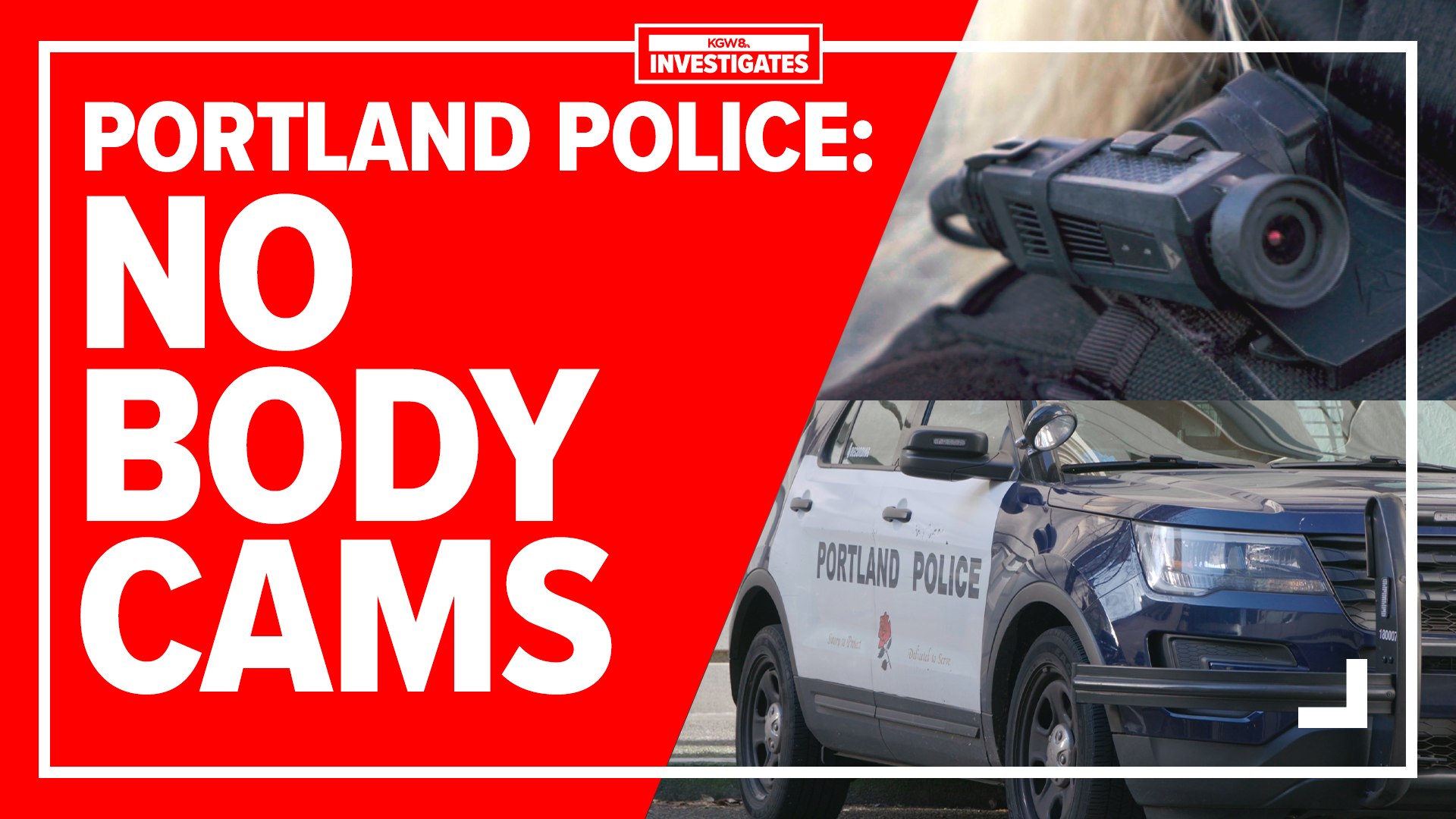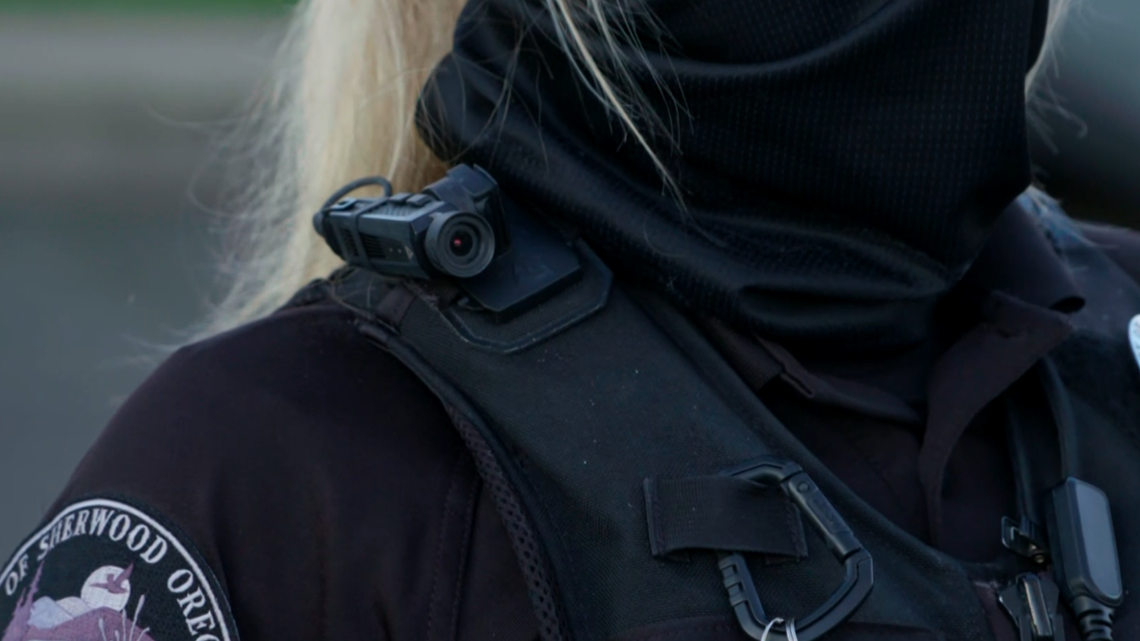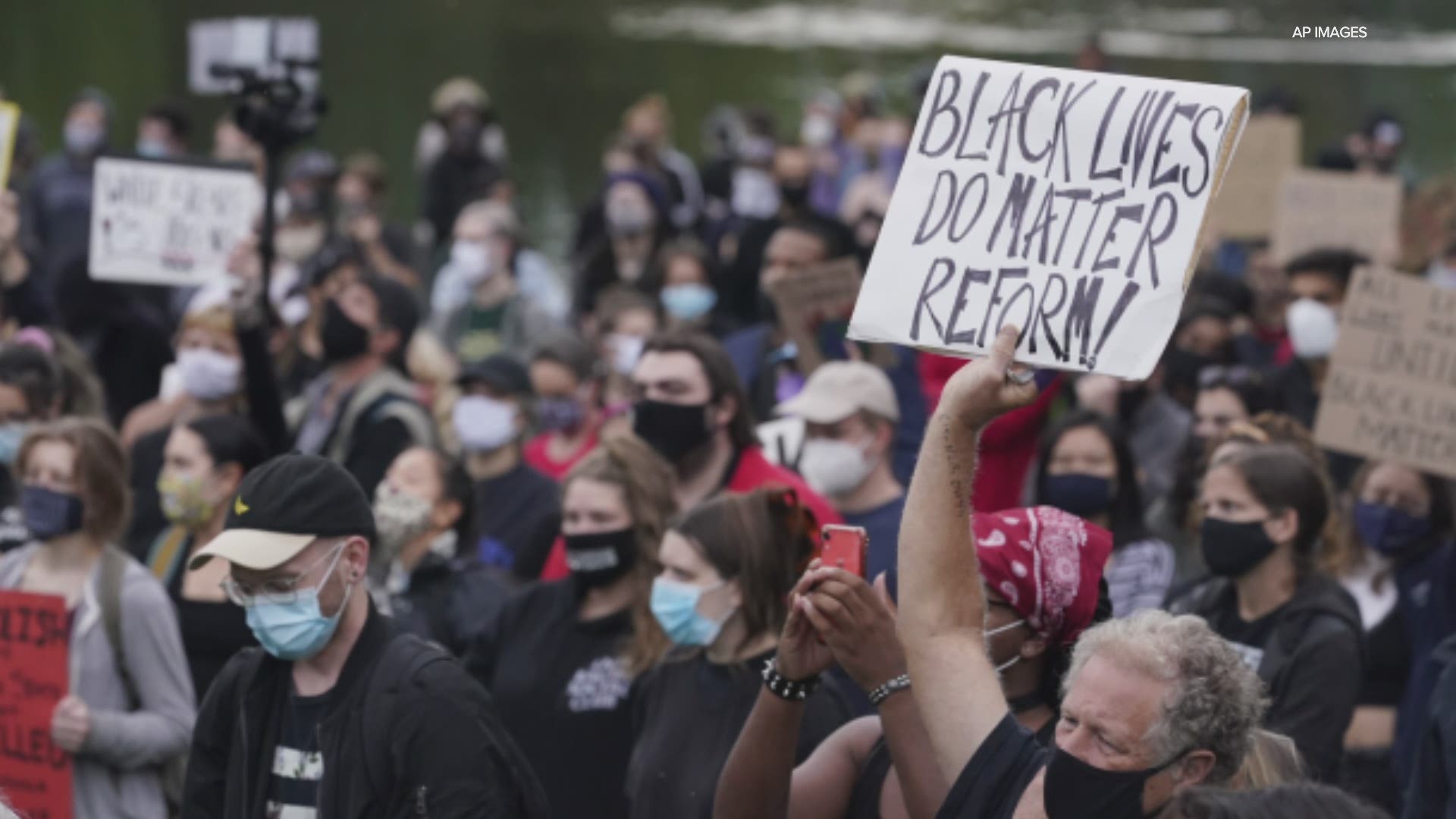Portland is only large city in America whose police officers don’t wear body cams
A KGW investigation found Portland Police is the only department among the 75 largest municipal police agencies in the U.S. that doesn't have body-worn cameras.

Police officers in the largest cities across the country are all equipped with body cameras with one major exception: Portland.
KGW reviewed records for the 75 largest municipal law enforcement agencies in the U.S. and found Portland was the only police department that doesn’t use body-worn cameras.
It’s not for lack of awareness. Two federal judges have urged Portland to use body cameras, and there have been years of public meetings and debates on the topic.
“We’d like to have them,” explained deputy chief Chris Davis of the Portland Police Bureau. “It’s a combination of reasons we don’t, but really the biggest one is it boils down to the cost.”
While body cameras wouldn’t solve every issue, many police reform activists still want to see them used here.
“I think it could add a layer of further oversight and accountability,” explained Candace Avalos, co-founder of the Black Millennial Movement.
Avalos knows body cameras would not solve the complex problems of police violence or racial injustice, but the technology could help.
“I think it is something we should explore and have tried to explore in the past,” said Avalos.
Debate nationally over impact
Nationwide, the evidence surrounding body-worn cameras has been mixed.
It’s not clear if they really alter police behavior or improve trust between police and the community.
Proponents argue these small cameras can provide an independent record of questionable or deadly encounters.
“In our day and age, where people are asking for transparency and accountability, body-worn cameras is one step closer to providing the community what they are asking for,” explained Brian Hunzeker, president of the Portland Police Association, the union that represents Portland officers.
Hunzeker sees body cameras as an investment that is long overdue.
“There are agencies that neighbor Portland that have body-worn cameras and they’ve had them for years,” said the union president.
So how do other agencies make it work?
“You have to be as creative as you can and try to find the money,” said Chief Jeff Groth of Sherwood Police Department, which has tested and used body-worn cameras in some form or another for more than decade.
“They work great,” said Groth.


Federal grant money
In 2018, Sherwood Police joined Hillsboro and North Plains to get a federal grant that would help pay for body-worn cameras and the cost of storing the video- which is the expensive part.
“It really needs to be looked at, from my perspective, as a worthwhile investment,” said Groth, who explained ongoing costs for the program are now part of his department’s annual budget.
Many police departments have also used federal grants to jumpstart bodycam programs.
Since 2009, the Department of Justice has awarded 805 grants to law enforcement agencies across the country totaling more than $142 million dollars.
In Oregon, some of that money has gone to 13 different law enforcement agencies, including Springfield, Pendleton, Gresham, Lincoln County, University of Oregon, Redmond, Washington County, Hillsboro, Marion County, Portland State University, Beaverton, Medford and Eugene.
The City of Portland has never applied for a Body-Worn Camera Policy and Implementation Program grant, according to a U.S. Department of Justice spokesperson.
The Portland Police Bureau estimates it will cost roughly $2.9 million to get a body-worn camera program up and running, with ongoing costs of about $1.8 million a year.
If funding is available, Portland police estimate it would take six months to get a pilot program operational, explained Davis.
Funding has always been the problem along with politics. In the fall of 2014, a federal judge urged the city of Portland to put cameras on its officers.
The mayor at the time, Charlie Hales, agreed. He wanted police to wear cameras within a year.
“Should we cross the threshold and get this equipment? I believe so,” said Hales in December 2014.
The police bureau set aside money and held community hearings.
By 2015, the implementation of a body-worn camera program appeared to be moving along. The city council awarded $834,610 that would be used for body cams and put aside another $1.6 million to fund the project through the next fiscal year.
Project on hold
In 2017, things hit a snag. Portland Mayor Ted Wheeler questioned if the project was feasible. He requested a detailed, long-term plan.
Then-Portland Police chief Mike Marshman admitted logistics and costs were still being ironed out. The project was put on hold.
In 2019, the body-worn camera project reemerged as police developed a detailed plan and a pilot program was slated to start in 2020.
In April, the program got derailed after the pandemic blew a hole in the city budget. The body camera pilot project ended up on the chopping block.
“Body cameras are an opportunity to have a level playing field where every single stop, every single police interaction is documented,” explained Cameron Whitten, co-founder of Black Millennial Movement.
Whitten emphasized that the public must have access to the video recordings for the body-worn cameras to truly provide transparency and accountability.
“I think Portland really needs to grapple with what is practical?” said Whitten. “What can we do to ensure that we are documenting instances of police misconduct and what is the practical way to ensure that every Portlandlander gets that type of needed justice?”
If you have a suggestion for an investigation, or want to blow the whistle on fraud or government waste, email investigative reporter Kyle Iboshi: kiboshi@kgw.com


